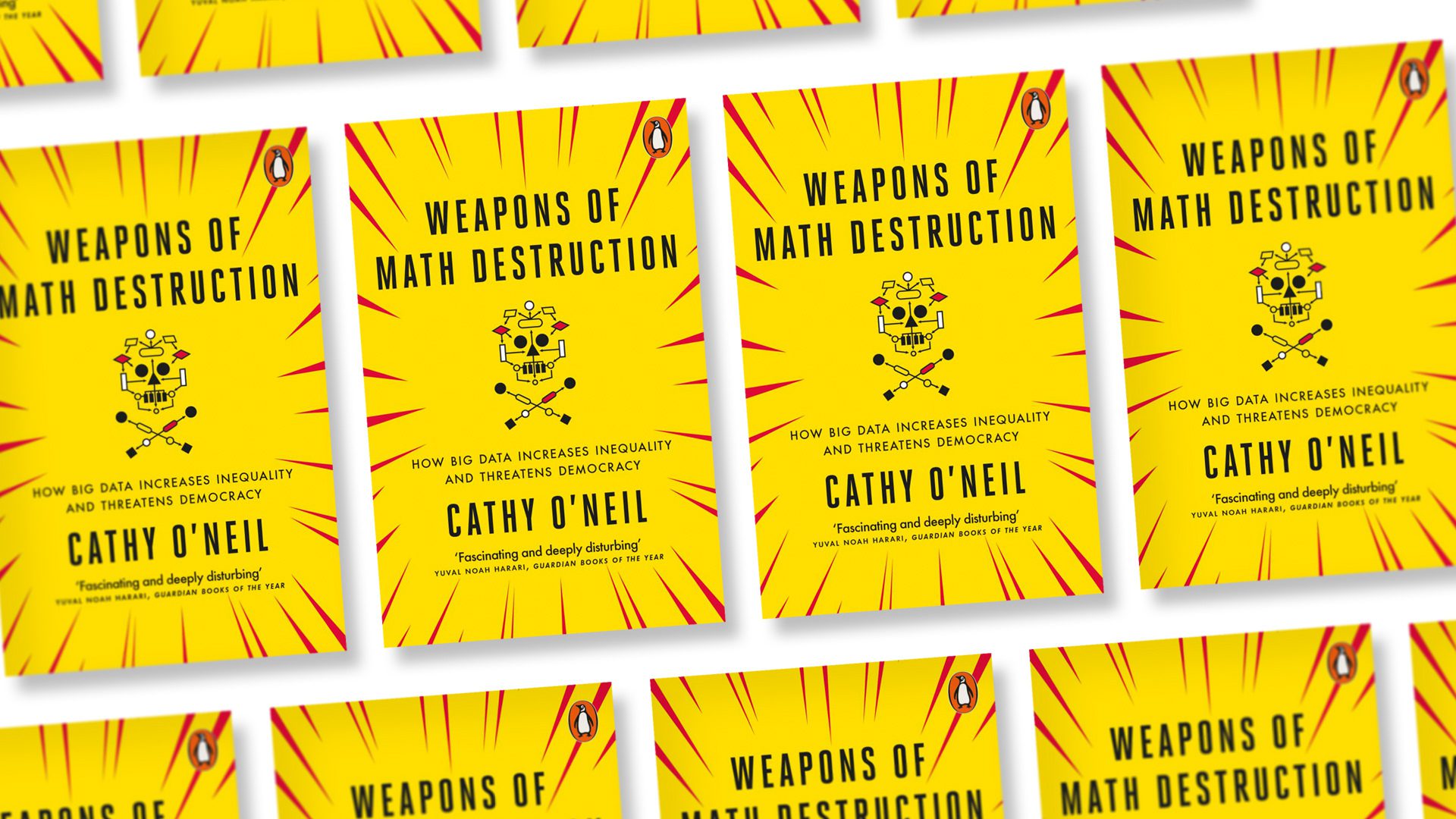- September 01, 2020
- By Aadit Tambe M. Jour ’22
From apps that predict our routes to work to software that determines credit card eligibility, many once-human decisions now rely heavily on algorithms—but at what cost?
In the 2020-21 First Year Book, “Weapons of Math Destruction: How Big Data Increases Inequality and Threatens Democracy,” author Cathy O’Neil argues that the mathematical models so ubiquitous in our daily lives reinforce discrimination and urges us to take a long, hard look at the impact of algorithms that, although out of sight, influence the world fundamentally.
 This year, courses, lectures and student organizations will examine the 2016 book, which analyzes the role of mathematical models and algorithms in everyday situations and major events such as the 2008 financial crisis, and calls on modelers and computer scientists to take responsibility for their creations. It also encourages policymakers to regulate how mathematical models are used to make important decisions and recognize how these models might cause harm. The New York Times in its review wrote that O’Neil “does a masterly job explaining the pervasiveness and risks” of algorithms.
This year, courses, lectures and student organizations will examine the 2016 book, which analyzes the role of mathematical models and algorithms in everyday situations and major events such as the 2008 financial crisis, and calls on modelers and computer scientists to take responsibility for their creations. It also encourages policymakers to regulate how mathematical models are used to make important decisions and recognize how these models might cause harm. The New York Times in its review wrote that O’Neil “does a masterly job explaining the pervasiveness and risks” of algorithms.
Lisa Kiely, assistant dean for undergraduate studies and head of the First Year Book Program, said she hopes the book will help students understand that they need to be critical about where they get their information, and how that information is assembled into algorithms.
“We think we're getting objective information when we use an algorithm,” Kiely said. “The algorithm is only as good as the people who created it.”
Jennifer Golbeck, a professor of information studies and computer scientist who researches algorithms, will use the book for her course, “Social Network Analysis,” which discusses social networks—both online and offline.
Golbeck has talked about ““Weapons of Math Destruction” in her course before. This year, however, she plans to focus on it more directly, using the book to help analyze how technology can be unfair and exacerbate societal issues.
“(The author) does a really nice job of highlighting why these things that are in our math at the core can still be racist or sexist or biased… and discusses why taking humans out of the problem isn't the solution to everything.”
Established in 1993, the First Year Book program aims to provide a shared experience for all first-year students. A committee of students, staff, and faculty selects the book each year.
“The point of the program is to [foster] a really good discussion,” Kiely said. “We have differences of opinion but how do we learn to communicate with each other... be respectful in our conversations, learn to disagree respectfully, and learn to listen to ideas that might be different than ours.”
Normally, the author is invited to campus to host a talk about the themes discussed in the book, but because of the coronavirus pandemic, Cathy O’Neil will not be coming to campus this academic year.
Recent book titles in the First Year Book Program have included “Demagoguery and Democracy” by Patricia Roberts-Miller, “The Refugees” by Viet Thanh Nguyen and “March: Book Three” by John Lewis, Andrew Aydin and Nate Powell.”
Topics
Campus & Community